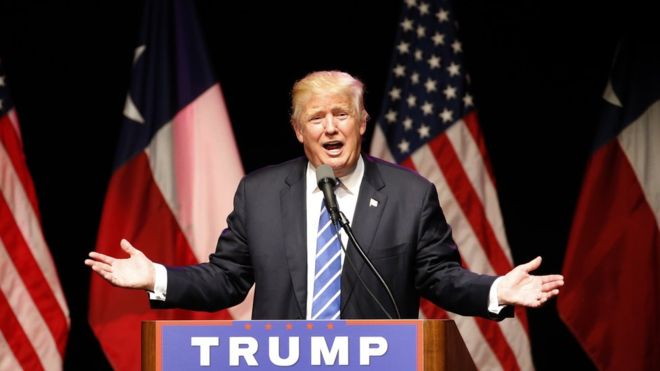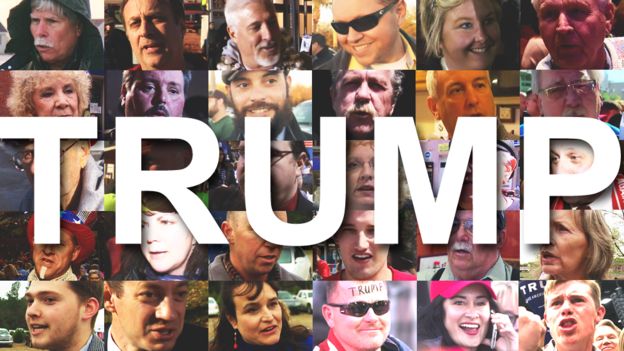Five reasons Brexit could signal Trump winning the White House

The two most surprising political phenomena of this year have been the rise of Donald Trump and the success of the Leave Europe camp in Britain's referendum on Brexit.
Few pundits saw either coming (and full disclosure, I include myself here, particularly on Trump) — but we should have and now would be a good chance to make up for past oversight by looking at how the two are linked.
This week, polls suggest, Britain may pull out of the European Union. Opinion polls currently have the 23 June referendum too close to call but the Brexit camp (those in favour of the UK splitting from the EU) has been inching ahead in recent weeks.
Later this year, Americans will decide whether to elect Donald Trump as the 45th US President, or Hillary Clinton.
Opinion polls also suggest this race is close, though with five months to go, those polls aren't terribly instructive yet. Yet the result next week in Britain could give us some indication of how Americans will vote in November.
Here's five reasons why.
Angry electorate
Donald Trump and Boris Johnson, the leader of the Leave campaign, have tapped into a similar public mood of disgruntlement. On both sides of the Atlantic, a lot of people feel they've been handed a bad deal. In the UK, it's European bureaucrats in Brussels who are to blame. In the US, it's elected politicians in Washington who are held responsible. Mr Johnson promises Brits a better deal if they throw off the onerous yoke of EU regulations. Mr Trump promises Americans a better deal if they put him in the White House.
Globalisation
The forces of globalisation are causing havoc for European workers as they are for American workers. If you are a white working class man (in particular) the combined effects of immigration, free trade and technology have made your job and your wages less secure. Policy makers in the UK and the US have singularly failed to address these issues in any meaningful way. If the Brexit camp wins next week it could suggest the global anti-globalisation mood (if such a thing is possible) is stronger than we realised.
Immigration
Immigration deserves its own category because it is so critical in both campaigns. Economists argue about the relative impact of immigrants versus robots on wage stagnation — voters don't care much. They blame immigrants. It's easier to get mad at a person from Macedonia or Mexico, taking your job than it is to get mad at a piece of technology from Silicon Valley. In both countries, governments haven't handled immigration well. America tried and failed to implement immigration reform and the country's Southern border remains porous (though to be fair, more people are using it to go south not north at the moment.) Like its European partner, the British government is caught in the nightmare story that is the European migrant/refugee crisis, with no effective response.
Lost pride
The complicated feeling of having had a bad deal has created an insidious spin off, a sense of broken pride, both national and personal. Working men, in particular, face a world they did not expect, jobs are hard to find and pay badly meaning they often can't provide single-handedly for their families, as their fathers and grandfathers did. That alone causes a loss of pride. In the US it is also linked to a loss of national pride through a sentiment among Trump supporters that President Obama has diminished the reputation of America by going on what they refer to as his "global apology tour." For Brits the loss of national pride comes from a feeling that British sovereignty has been given away to Brussels and if we leave the EU, we will be stronger, better, more respected.
Populism
And, finally, populism loves simplicity, especially, it seems, when it's dressed up with an impressively wacky hair do. Boris Johnson and Donald Trump appeal to the heart not the head, they offer simple solutions in a time of complex problems. It's an appealing message. Think about the complicated consequences later, the thinking seems to go, for now protesting the status quo feels like a good start.
A victory for Brexit next week by no means guarantees a Trump victory in the autumn. However, if the forces of disgruntlement, nationalism, populism and anti-globalisation are strong enough to force a radical move in the UK, they may be strong enough to force a radical election in America too.
Политика конфиденциальности | Правила пользования сайтом









